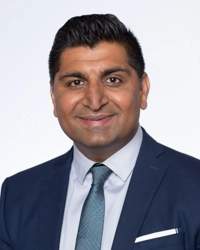Recent trends in workers’ compensation practice have caused attorneys and claims professionals to adapt. Like how Olympic drug testers are seemingly always one or two steps behind athletes who use performance enhancing drugs, Judges and the WCAB are slow to catch on to slick and trendy moves made by attorneys pushing the envelope. To make sure claims are properly defended, it is absolutely necessary for defendants stay on top of certain tactics to avoid falling prey to the predatory moves of our adversaries.
Requesting a panel is often one of the very first steps an attorney, whether representing an applicant or insurance company, does. Selecting panel specialty is an imperative step that often determines case value. Thus, being aware of tendencies and being the aggressor is important to avoid historically applicant friendly specialties, such as chiropractors.
Recently, applicant’s attorneys have been burying their preferred panel specialty deep in their notice of representation letters. Often, these initial letters sent by attorneys include three or four page boilerplate letters citing case law and Labor Code sections relating to MPN treatment, sub rosa, indemnity, etc. However, these missives usually also contain a sentence that briefly lists applicant’s preferred panel specialty. While this can easily be glossed over, it can come back to bite the defense.
For instance, with the online panel selection process, parties are asked to fill in their preferred panel specialty as well as the opposing sides preferred panel specialty, if known. If the party requesting the panel fills in “unknown” when they have correspondence reflecting the opposing party’s preferred specialty, this may be deemed a material flaw, thus making the requested panel invalid. Practice tip: review the entire file, including opposing parties letters, to make sure the panel request is complete and, most importantly, accurate.
Also, applicant’s attorneys are getting savvy regarding requesting panels as soon as they see defense attorney notice of representations. As such, when reviewing a new file, claims and counsel must be on the same page as to whether delay or denial (for LC § 4060 panels) or treatment objections (for LC § 4061 and 4062 panels) have been sent out. If so, defendant is best suited to diary the date to request the panel.
When requesting a panel, if you snooze, you lose. Therefore, organization as well as knowing what to look for are integral factors is ensuring you get the panel specialty you prefer.
Nasir F. Adil is a B&B Partner based out of our Oakland location. Mr. Adil has practiced workers’ compensation defense for over 8 years. You can find additional information about his experience at: https://www.bradfordbarthel.com/profiles/nasir-adil/. He can be reached at (510) 268-0061 or nadil@bradfordbarthel.com.
Viewing this website does not form an attorney/client relationship between you and Bradford & Barthel, LLP or any of its attorneys. This website is for informational purposes only and does not contain legal advice. Please do not act or refrain from acting based on anything you read on this site. This document is not a substitute for legal advice and may not address every factual scenario. If you have a legal question, we encourage you to contact your favorite Bradford & Barthel, LLP attorney to discuss the legal issues applicable to your unique case. No website is entirely secure, so please be cautious with information provided through the contact form or email. Do not assume confidentiality exists in anything you send through this website or email, until an attorney/client relationship is formed.


